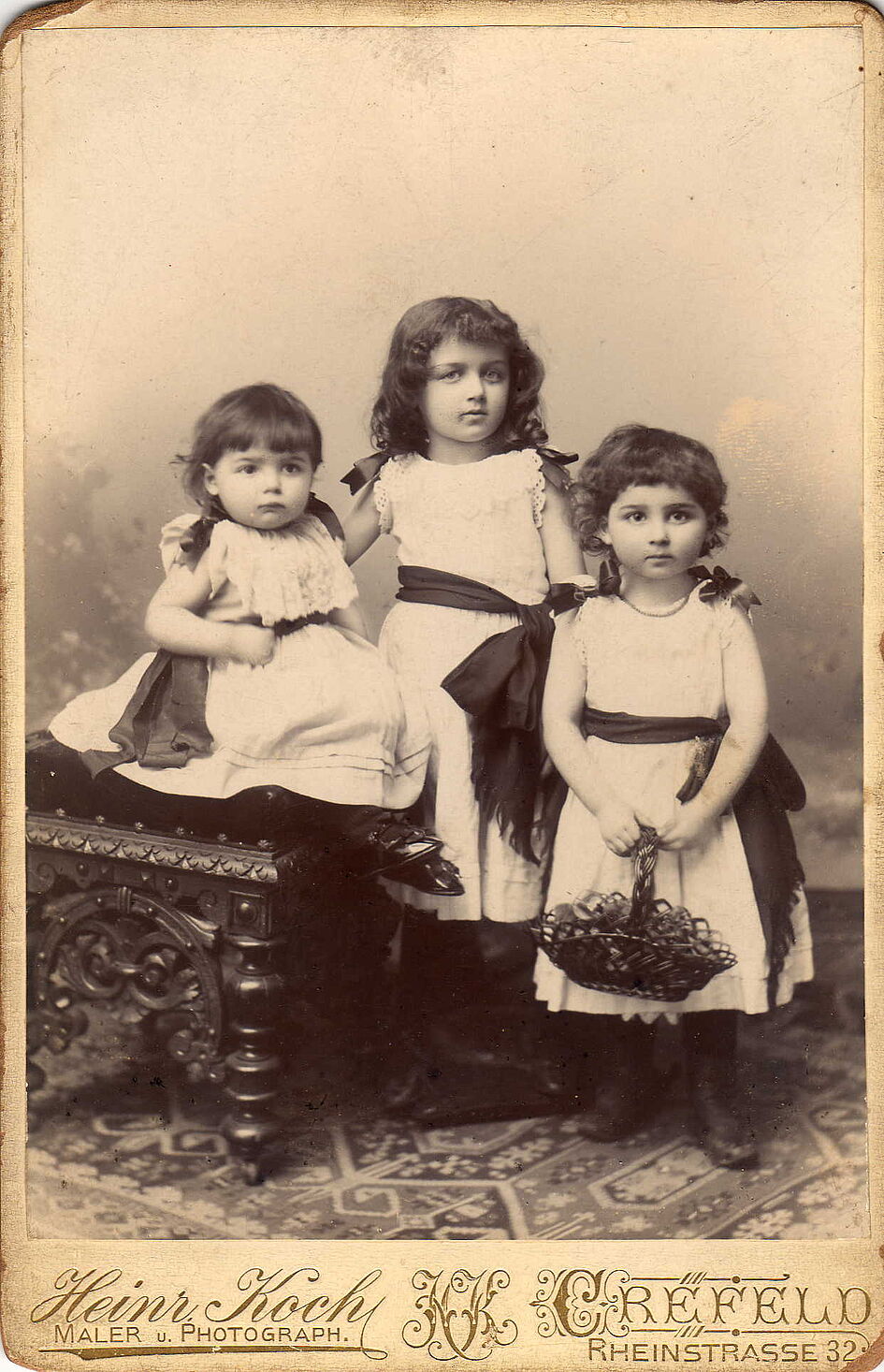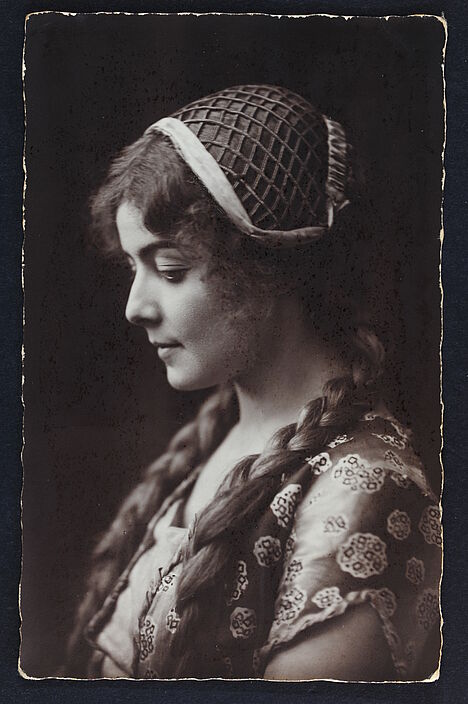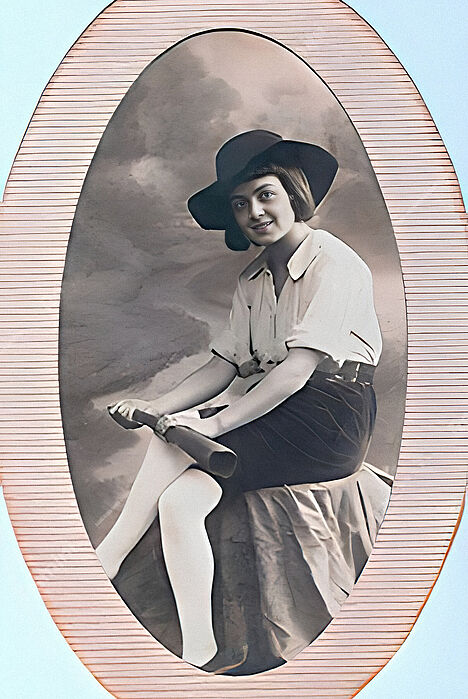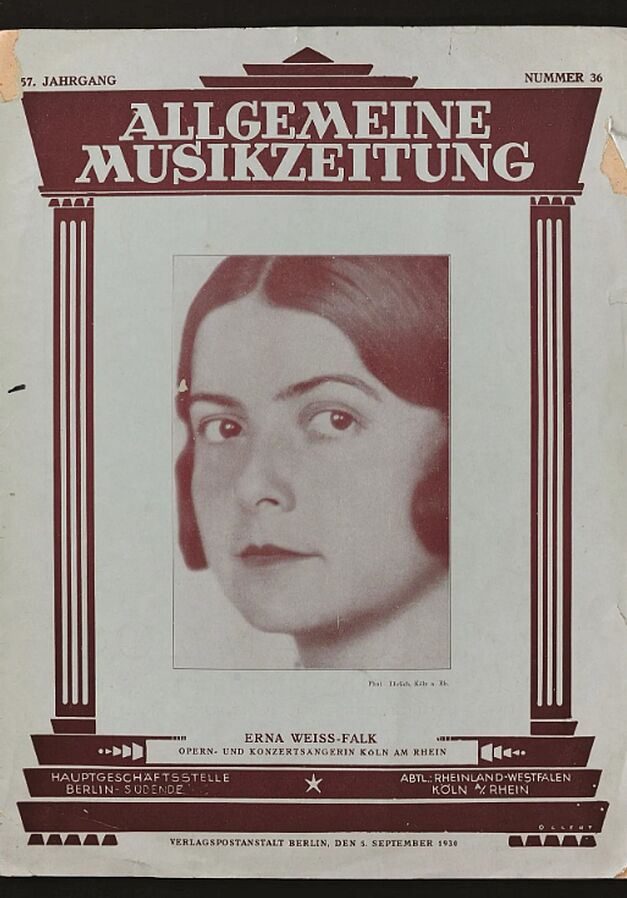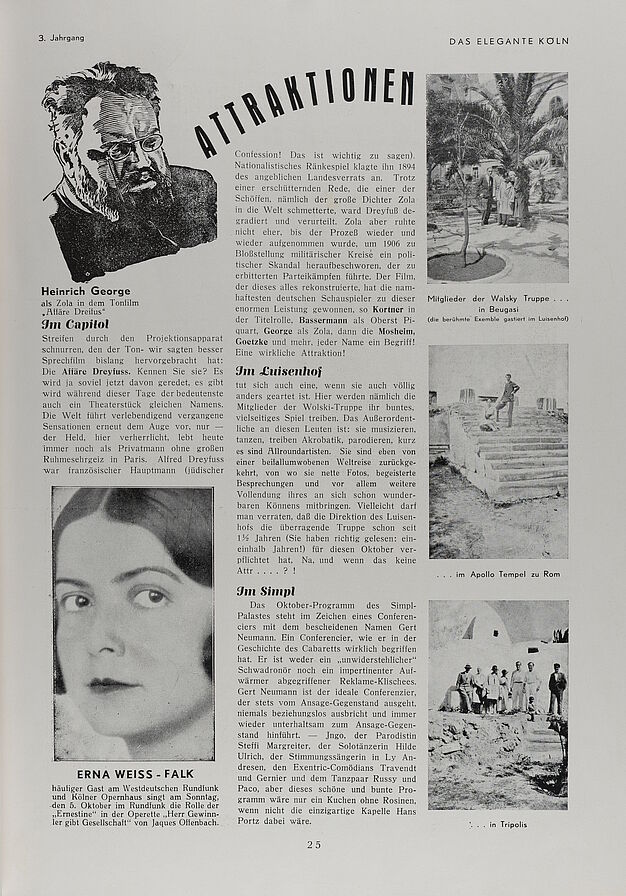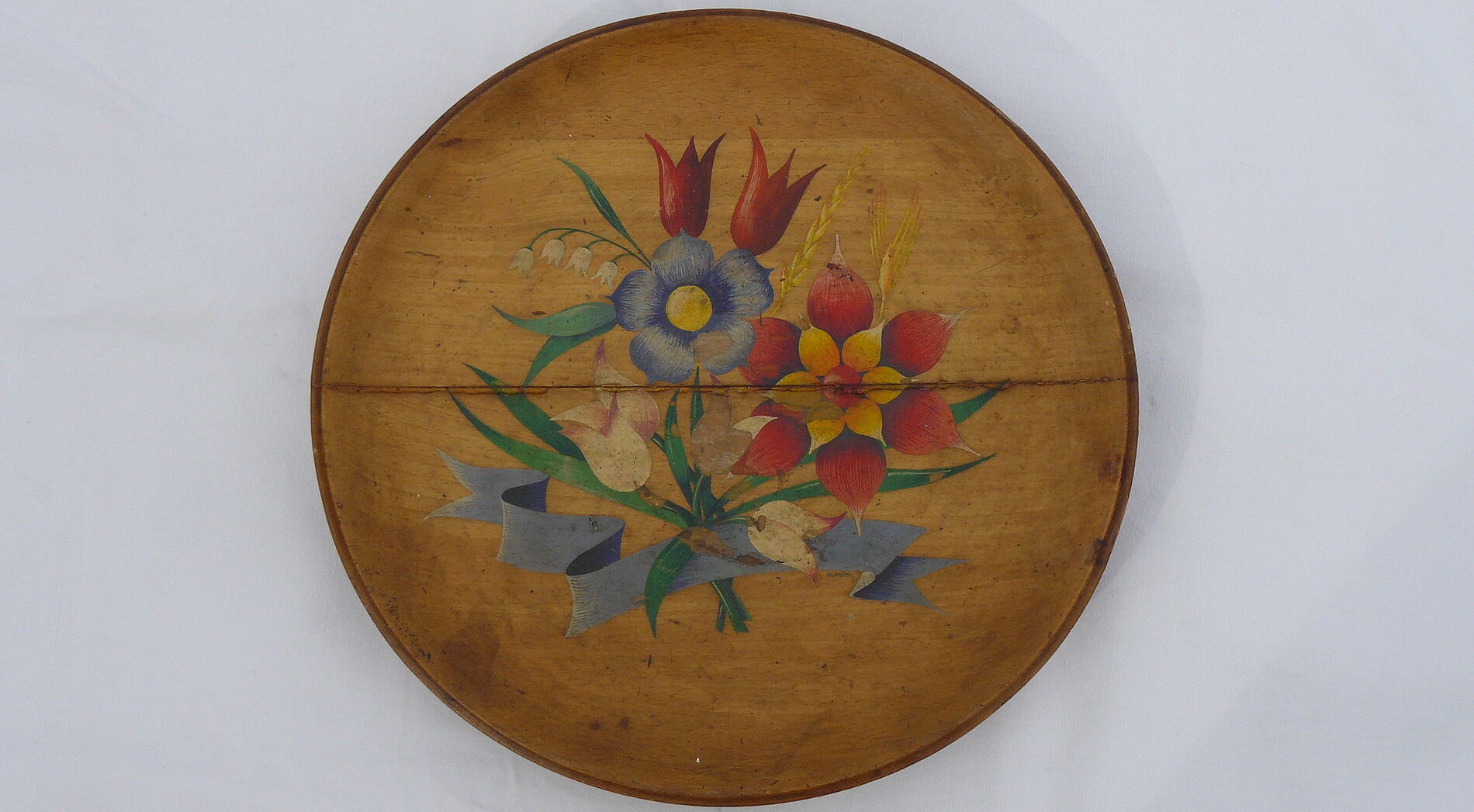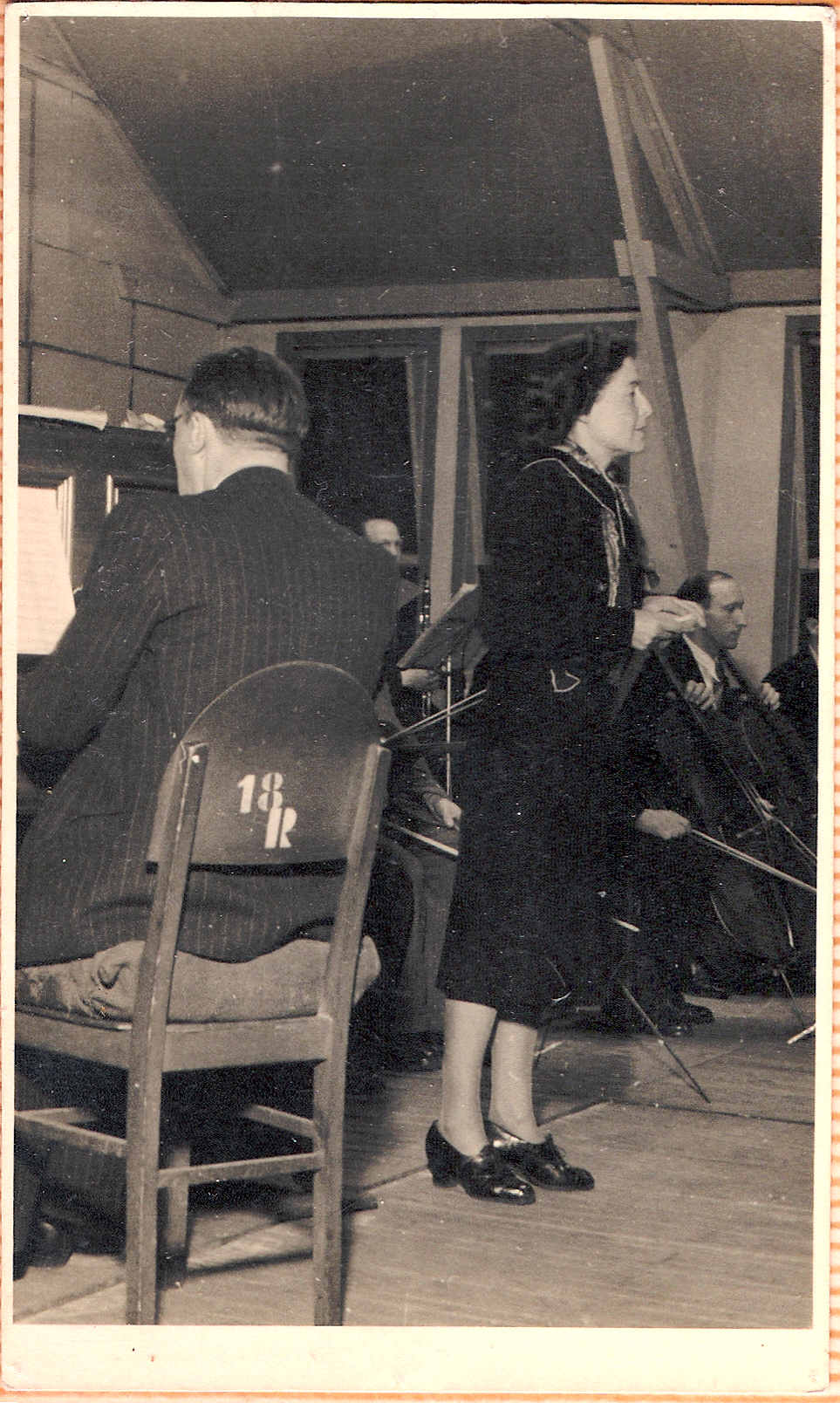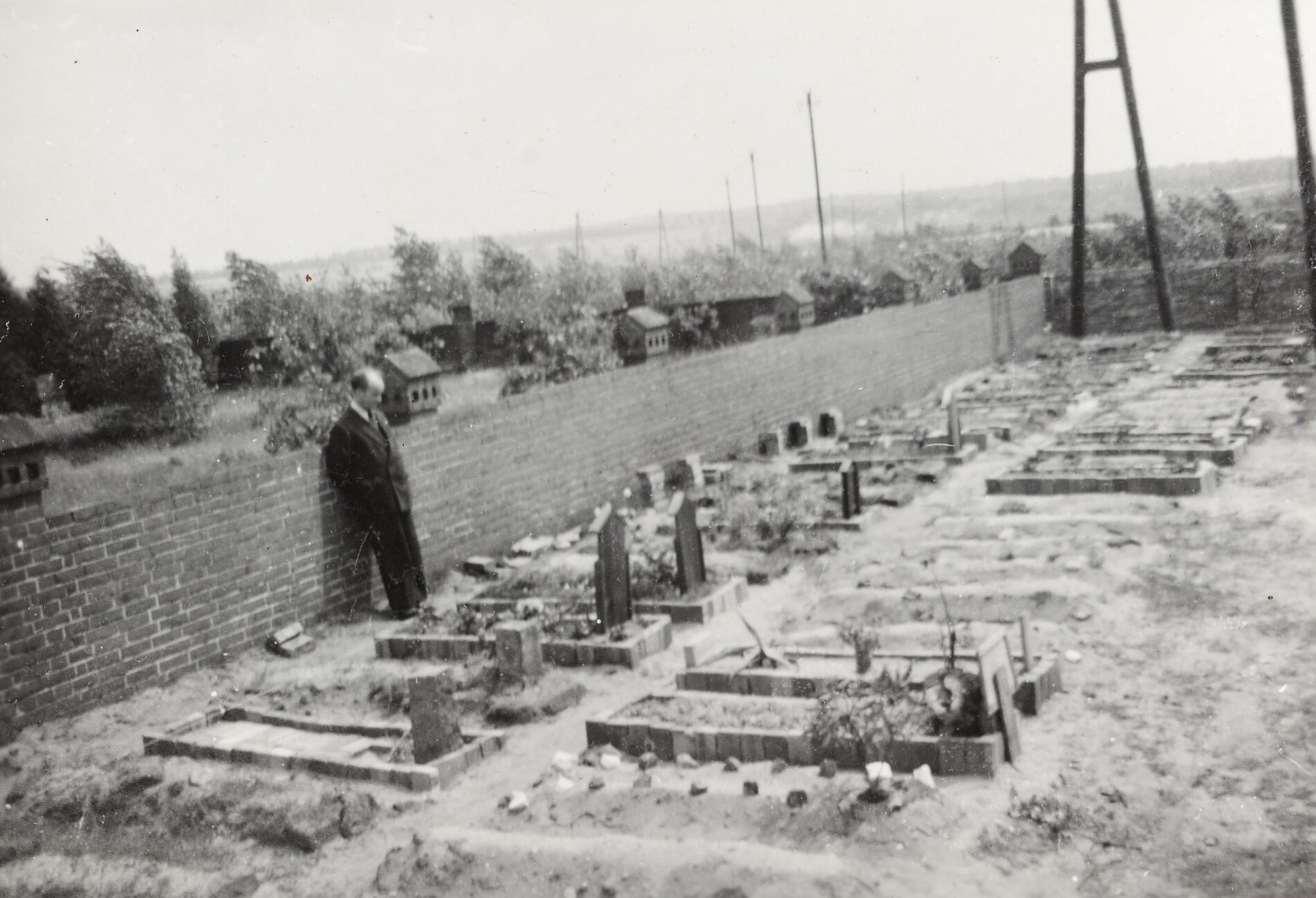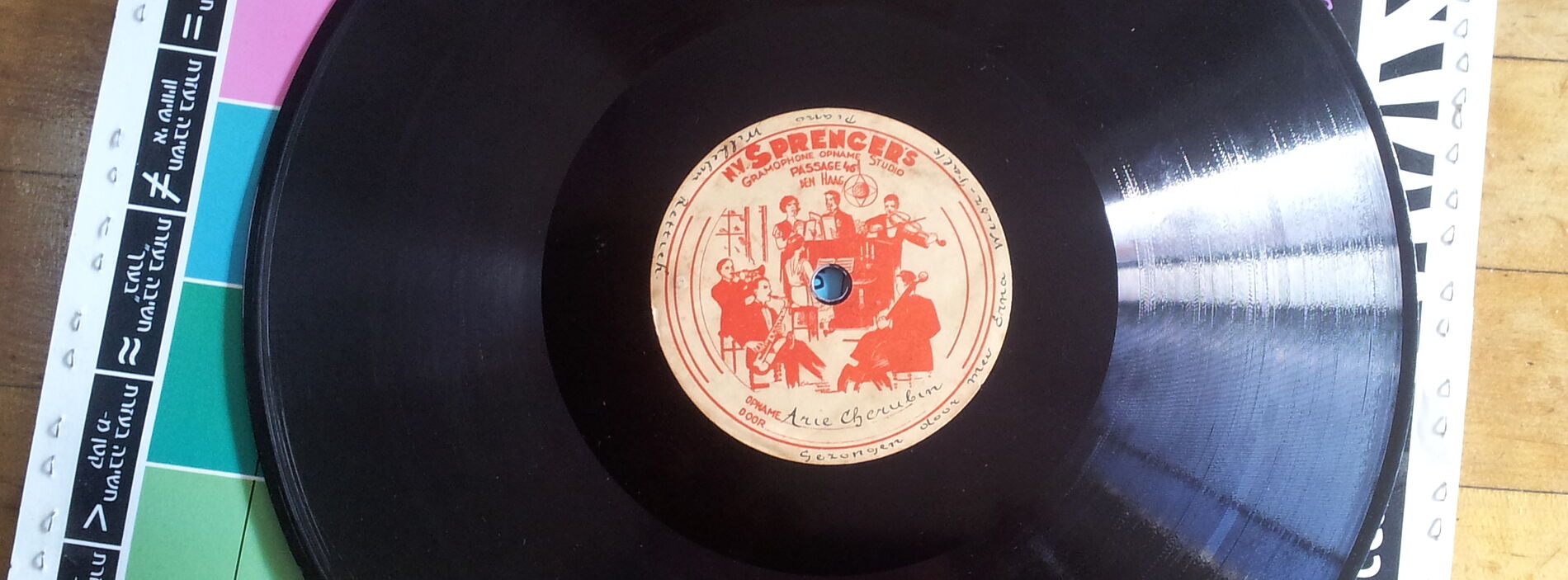Indeed, one can only imagine how much comfort her voice must have brought in such a setting, and for an audience who had no clue about their fate. As her granddaughter Atara commented: “We got the photograph after the war. She loved to sing Schubert, and I know she sang Schubert that night. In her plain clothes”. In September 1944, the cabaret ensemble was suddenly disbanded, and all participants were send to Auschwitz-Birkenau.
Bergen-Belsen, Liberation and Death
The family stayed in Westerbork for approximately two years. Weiss was recognised by the SS administration as being an “economically valuable Jew”, and was placed on a Zionist transport list to the so-called “Star residence camp” in Bergen-Belsen alongside his wife and child. The “Star camp” was a unique part of Belsen in which Jews with foreign nationalities, certificates to emigrate to Palestine or with economic and political connections were housed, and could be used for “bargaining” by the Nazi administration looking to exchange for money, supplies, or German POWs held in captivity by the allied forces.
In the “Star Camp”, Weiss became a “Jewish elder”: a highly regarded and well-known figure amongst the other prisoners, and was responsible for the internal administration of Belsen’s subcamp network. Separated at night, Weiss-Falk had daily contact with her husband and son, who were accommodated together. Having fallen ill for the first period of her time in the camp, after her recovery she was able to care for the children and sick in the camp infirmary. In letters that Josef Weiss wrote to family in the United States, England and Palestine, he recognised the support and resilience of his wife as he took on emotionally difficult duties to improve life for their fellow inmates. According to contemporaneous materials and studies on Weiss’ role as an Elder, he became a source of great strength for others and risked his life time again to help others. For instance, he would withhold death registrations of prisoners who had perished in order to redirect food rations to those who were sick, and would work secretly at night with a prisoner who was a plumber to open the water supplies. He often succeeded in persuading the camp commanders to change their decisions on collective punishments, and prevent further deportations to Mauthausen. As an organiser of Jewish affairs, Weiss was also able to save lives by falsifying lists and allegedly having contacts with the Vatican. He encouraged the celebration of Jewish life and religious holidays, as a form of spiritual resistance in the face of the hellish campscape of Belsen. In 1945, he also smuggled several lists of thousands of names of people who had died in Bergen-Belsen - including Margot and Anne Frank - passing the information onto the Red Cross. These lists would later prove invaluable in understanding who had arrived and died at the camp during the Holocaust and, although some were lost in the chaos of those final days, Weiss tried to recreate what he could from memory.
Shortly after the war, Weiss wrote about the very special Seder evening that was held in Bergen-Belsen in 1945. He and Weiss-Falk had been invited to the celebration in the children’s barracks, but first he was asked to give a speech to every other barracks in the “Star camp”. Hesitant to do so, given the bleak nature of those last months in the camp, Weiss-Falk told her husband: “But that is exactly why you have to speak,” in her “customary quiet and persuasive manner.” At this celebration, a lovingly handcrafted meal which consisted of dishes made almost entirely of turnip, including turnip “Seder wine”, was served. During their time in Belsen, Weiss-Falk and her husband lived almost exclusively on a diet of turnip and beets, and in relation to this particular meal Weiss declared: “only once did I appreciate the value of the turnip”. Hymns were also sung by the children, as Weiss remembered: “The second part of the Seder was as solemn as the first. The Passover hymns were chanted by the children. Never had I heard them sung more beautifully than by these young voices. [...] We left the children’s barracks deeply moved, and returned to the ‘real world’”.
Regardless of Weiss’ high status in the camp, the war ravaged on. In April 1945, as the impending defeat of the Nazis drew closer, Weiss-Falk, her husband, and son were put on the second of three trains that were intended to transport prisoners from the Bergen-Belsen concentration camp to Theresienstadt, as Allied troops approached the camp. Their specific transport would later become known as the infamous “Lost Train” which, along with 2,400 other prisoners, travelled aimlessly through unoccupied parts of Germany, unable to fulfil the route as planned. Weiss contracted typhus during the journey and was cared for by his wife and sister, who continued to record the names of those who died on the way, and where they had been left. The train finally stopped near the Brandenburg municipality of Tröbitz, where those on board were liberated by the Red Army on 23rd April. The family found temporary housing until they could figure out their next move.
Regrettably, liberation came too late for Erna Weiss-Falk. Having endured two concentration camps and a gruelling, inhumane journey in an overcrowded transport with little food or water, she succumbed to typhus. Her freedom lasted for only a matter of days, during which she suffered with fever and hallucinations.On 6th May 1945, she passed away at the age of 51, and was buried in the cemetery of Tröbitz. Weiss, who was only starting to recover himself, was so weak from the journey that he could barely walk during the burial, but managed a few steps. In a letter addressed to his surviving family dated 25 July 1945, Weiss painfully recalled the event of his wife’s passing: “...it is very sad, our dear wife and mother is no more. [...] Erna told me, “If Wolfgang is still alive and well, we will have been unbelievably lucky.”...at 2: 15 am, Erna died peacefully. She was as serene during her illness as she had been all her life. The funeral was at noon. I got out of bed for the first time, and managed to walk behind the bier for three steps. It was dreadful.” Once he had recovered, he returned to her grave and was photographed by author and fellow Bergen-Belsen survivor Werner Weinberg. on a found camera with some spare film. Her grave was also sketched by an artist known as “Sajo”, which was later donated to Yad Vashem. This drawing depicts the grave as being surrounded by beautiful flowers, when in reality, it was only the headstone and soil.





